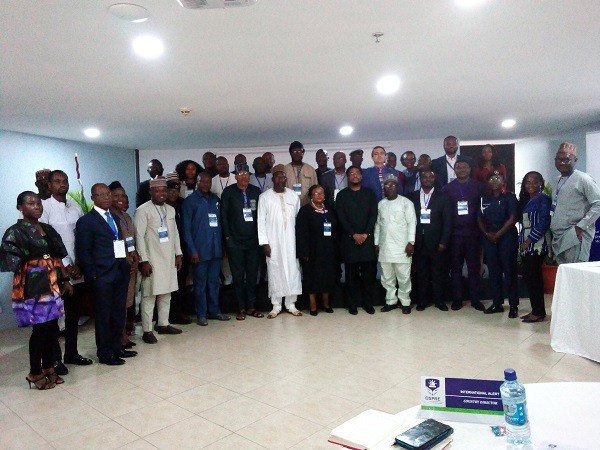
The Office for Strategic Preparedness and Resilience (OSPRE) and the Economic Community of West African States (ECOWAS) have pledged to promote and create avenues for peace-building at the national and sub-national levels in Nigeria.
This was disclosed by the director-general of OSPRE, Mr. Chris Ngwodo at the Concord Initiative inaugural summit and technical workshop held in Abuja today.
Ngwodo said that the mission of the centre as an aggregator of early warning and response mechanisms in the country is to provide necessary support in peace-building efforts on subnational and national levels which will ultimately benefit the region and continent.
“Early warning and early response are faculties that are active in various contexts, ranging from climate security and the environment, natural disaster, food security and energy security to peace-building and conflict prevention.
“A key part of our mission is to address the nexus between security and development and to help both the state and society at large apprehend the community between these dimensions.
“The event brings together actors involved in the conflict, early warning and response, as well as peace-building,” he said.
Ngwodo assured that the initiative would close the gap between state and civil society actors, national and subnational, early warning and early response, as well as [the gap] between tactical necessity and strategic culture.
“We want to come together as a group and be able to benefit from the experience and the perspectives and the resources that we all have, that we work in the same centre.
“Therefore, the second gap we need to close is a sum between the players at the national level. So, you have organisations that are working in the states or communities. Conflict and violence are local phenomena. So, you really cannot intervene in conflict until you understand the local nuances and the specific contextual dimensions of those things. That is why we are partnering with local actors.”
In his remarks, the head, democracy, governance and migration, European Union delegation to Nigeria and ECOWAS, Mr. Ruben Alba-Aguilera, said the Concord Initiative is a welcome development. He said regional peace is hinged on strong political leadership, commitment and a shared vision and strategy amongst national and local stakeholders.
He further expressed hope that the initiative’s whole-of-society approach will help to enhance and consolidate ownership and inclusion for a strengthen national peace architecture.
During his goodwill message the director-general of the National Orientation Agency (NOA), Dr. Garba Abari said early warning is critical to the successful implementation of peace-building, early warning and response.
Abari, represented by the acting director-general, NOA, Mr. Kehinde Ogunkunade said: “The promotion of peace and security is a task for every individual and, in the Nigerian context, the responsibility of well-meaning citizens.
“We are all stakeholders in security and peace-building and we must all take action in supporting governments effort and sustaining peace and security in Nigeria.”
Similarly, the director-general of the National Boundary Commission (NBC), Surveyor Adaji, represented by Dr. Farouk Tarfa promised that NBC will provide all the support needed for the institution to succeed.
The event was organised by OSPRE, in collaboration with the Deutsche Gesellschaft für Internationale Zusammenarbeit (GIZ GmbH), ECOWAS Peace and Security Architecture and Operations (EPSAO) Project.
The EPSAO project is co-funded by the European Union (EU) and the German Federal Ministry for Economic Cooperation and Development (BMZ). It is implemented with the technical and financial support of Deutsche Gesellschaft für Internationale Zusammenarbeit (GIZ GmbH) through an early warning centre set to provide peace-building at the national and subnational levels in the country.
OSPRE is mandated to address threats to human security and to build the preparedness and resilience of institutions and communities” he disclosed.
The Concord Initiative is a partnership that seeks to actively involve state and non-state key actors as well as communities to better identify and prevent threats to public safety.

